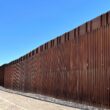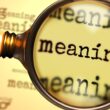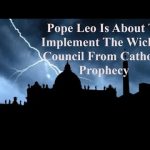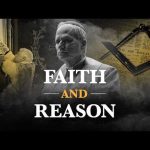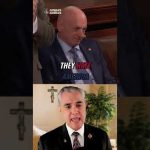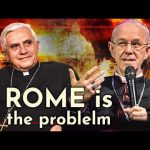At their fall plenary assembly this week, the U.S. bishops held a consultative vote to advance the beatification cause of Servant of God Isaac Thomas Hecker, who founded the Missionary Priests of St. Paul the Apostle, better known as the Paulists.
Presenting to his fellow bishops, Cardinal Timothy Dolan of New York called Hecker’s life “a classic American story.”
He praised Hecker for his work to make the Catholic faith appealing and compelling to American society, and to resist the polemical tone that some apologists at the time adopted.
“He sought an apostolate of attraction – to propose the faith with clarity, color and charity,” the cardinal said.
“His efforts were animated by a deep sense of hope in the future of the United States of America, despite the divisions that at his time were tearing the country apart,” Dolan continued. “Fr. Hecker believed that the Catholic Church was uniquely positioned to heal and unite the American people.”
Following Dolan’s presentation, the bishops overwhelmingly voted to advance Hecker’s cause.
—
Hecker was born to German immigrants in 1819, the youngest of five children. He was raised Methodist by his devout mother.
As a young child, he came down with smallpox. Though his family feared he would die, he confidently told his mother, “I shall not die now. God has work for me in this world, and I shall live to do it.”
Hecker attended school until age 12. He worked for a few years at various jobs, including as a delivery boy for the bakery his brothers had established. In this role, Hecker became acutely aware of the disparity between the wealthy living in mansions in the rich areas of town, and the poor grappling with disease and filth in the streets.
This awareness led Hecker and two of his brothers into politics. They became active in the Loco-Focos movement within the Democratic party, which opposed monopolies and state banks.
However, Hecker eventually became disillusioned by infighting within the Democratic party. He turned to philosophy as he sought answers to the deep questions of life. He joined Brook Farm, a cooperative community outside Boston, where he continued studying philosophy, along with literature and languages.
Still, Hecker was plagued by a sense of loneliness and uncertainty about his life. As a young man, he had experienced mystical visions that left him with a lingering sense of confusion.
After a lengthy exploration of different Christian denominations, Hecker entered the Catholic Church in 1844. Feeling called to the priesthood, he explored the Dominicans, Franciscans. and Jesuits. Ultimately, though, he joined the Redemptorists. He was ordained a priest in London in 1849.
A year and a half later, Hecker returned to New York. In the years that followed, he worked alongside his Redemptorist brothers to give missions at parishes throughout the United States. He was very successful in his missionary work, often preaching to packed churches and, alongside his religious brothers, attracting scores of conversions.
As time went on, Hecker and some of his fellow American Redemptorists saw a need for a new Redemptorist house in America for English speaking members of the order. However, his superior disagreed, and declined his request to travel to Rome to appeal for the establishment of such a house.
Hecker traveled to Rome despite his superior’s refusal. He argued that the order’s constitutions allowed him to visit the Redemptorist General, even without permission from his direct superior. However, the General accused him of rash disobedience and expelled him from the Redemptorists.
Hecker appealed his expulsion. His appeal reached Pope Pius IX, who agreed to overturn his sentence and dispense him from his vows.
During this time, however, Hecker felt a call to create a new congregation of priests, specifically to work for conversions in America. The pope approved of his plan, and he traveled to New York with three of his fellow former Redemptorists. There, they were welcomed by Archbishop John Hughes, and they established the Missionary Priests of St. Paul the Apostle, known today as the Paulists.
Hecker believed that the United States had a unique character, and that successful efforts at evangelization must recognize that. He saw America and Catholicism as fundamentally compatible, and believed that the United States had tremendous potential to become a Catholic nation.
In his work as a Paulist, Hecker delivered numerous lectures aimed specifically at American Protestants. His biographer, Fr. Walter Elliot, later said that “he stamped American on every Catholic argument he proposed.”
Hoping to further spread his defense of Catholic teaching, Hecker turned to the popular media of the time. He created a monthly magazine entitled “The Catholic World” in 1865. He later founded what would become the Paulist Press and an additional youth magazine.
Hecker was deeply devoted to prayer and docility to the Holy Spirit. He once said in a sermon, “You say you have no time to pray? Have you time to breathe? Prayer is to the life of the soul as breathing is to the life of the body.”
As his success as a preacher and author grew, Hecker was called to join Bishop James Gibbon at the First Vatican Council in 1869-70.
Shortly after his return, he was diagnosed with leukemia. He battled the disease for more than a decade, often struggling with feelings of abandonment and dark night of the soul.
He died in New York on December 22, 1888.
After his death, Hecker was viewed as a controversial figure by some, particularly when the preface to a French translation of his biography suggested he believed the Church should compromise its teachings to adjust to American culture.
Pope Leo XIII addressed this controversy in an 1899 apostolic letter entitled Testem benevolentiae. The letter, addressed to Cardinal James Gibbons of Baltimore, warns against a misplaced freedom and individualism that would lead to a minimizing of obedience, rejection of religious vows, and laxity of doctrine.
Pope Leo did not explicitly accuse Hecker of adhering to problematic views, but asked Gibbons to watch for such problems in the American Church. Gibbons responded, along with numerous other bishops, saying that these views were not present in any significant way in American Catholicism.
Hecker’s sainthood cause was opened in 2008, with a Mass celebrated by Cardinal Edward Egan. The cardinal noted that Hecker had struggled at times with loneliness and finding his path in life. He described him as a model in suffering and praised his uniquely “American approach to announcing the Gospel.”
Father John Duffy, president of the Paulist Fathers at the time, said Hecker believed “that if the principles of freedom and democracy of this country were combined with the teachings of Jesus Christ as proclaimed by the Catholic Church then America could become a light to the nations.”
Duffy said the enduring mission of the Paulists consists of “evangelization, proclaiming the good news of Jesus Christ to the unchurched; reconciliation, reaching out to those who find themselves cut off from the community of faith and/or at the margins of society; seeking unity for the body of Christ and seeking dialogue with those of other world religions.”
Today, the Paulist Father describe themselves as “a community of Catholic priests that seeks to introduce the Good News of Jesus Christ to people beyond the Church walls, and to accompany Catholics who feel apart from the Church.”


